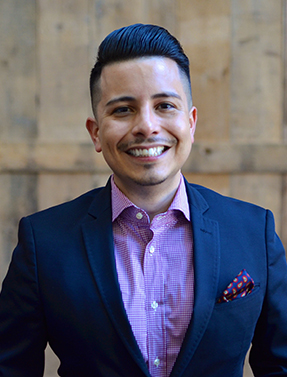When it comes to climate change and its impact on U.S. Latinos, the facts usually tell a bleak story full of bad news and mounting threats. While there’s no question that climate impacts are real and growing, and that Latinos are on the front lines of those adverse impacts, the story doesn’t have to end badly. In fact, U.S. Latinos are poised to create a much more hopeful story about the benefits of climate action and opportunities to build stronger communities.
First, the bad news: we have an overwhelming body of scientific evidence confirming that human-caused climate change is increasing the frequency of extreme weather events – like severe storms, heat waves, and prolonged drought – posing significant threats to communities all over the world. In the U.S., these threats are especially present for low-income communities and communities of color because climate change and extreme weather amplify existing vulnerabilities such as poverty, chronic health conditions, poor air quality, and inadequate infrastructure. Latinos, the nation’s fastest growing demographic, face a disproportionate risk because of where they live and the existing conditions in their communities.
Western and Southwestern states– including California, Nevada, Colorado, New Mexico, and Texas – have the largest concentrations of Latinos in the country and are expected to experience more intense and frequent heat waves and drought. These impacts are already being felt as 2014 was the hottest year in recorded history and many states are suffering from devastating drought conditions.
One of the biggest drivers of climate change – greenhouse gases produced from burning fossil fuels in vehicles and power plants – also emit harmful air pollution. Today, half of all U.S. Latinos live in the country’s most polluted cities. This threat is amplified when heat waves mix with air pollution, causing people to experience illness, an aggravation of chronic respiratory conditions, and even death. Already, Latinos are three times as likely as whites to die from asthma, and Latino children are 60 percent more at risk than white children to have asthma attacks.
These statistics can create the impression that climate change and air pollution is a fast-moving freight train headed straight toward the growing U.S. Latino population. But there can be a very different story here.
The range of solutions available to reduce climate change should yield significant, multi-faceted benefits for Latino communities. Cutting greenhouse gas emissions will reduce air pollution and help stave off the impacts of climate change that disproportionately burden U.S. Latino communities, while simultaneously improving the economic conditions that render them especially vulnerable.
Here’s an example of a win-win scenario: New research from the University of Massachusetts estimates that the U.S. will need to reduce its fossil fuel use by 40 percent within the next 20 years to avoid the worst impacts of climate change. This significant level of reduction in fossil fuels will require an estimated $200 billion annually in both public and private investments in a “clean economy” that includes clean energy, public transit, clean fuels and vehicles, and urban greening.
The health and economic well-being of the U.S. Latino workforce could benefit dramatically from this influx of clean economy investments.
The National Council of La Raza analyzed the clean economy in regions with large or rapidly growing Latino populations across five states: Tennessee, Texas, Arkansas, New Mexico, and California. The report found a “strong overlap between the major occupations that make up a local clean economy and the top occupations that employ Latinos.”
What’s more, clean economy jobs pay well and tend to be accessible to a larger pool of candidates. The Brookings Institute reports that 41 percent of the nation’s clean economy jobs offer medium to long-term career building opportunities, pay a higher-than-average salary, and the majority do not require a four-year degree. Strong growth in the clean economy, coupled with policies and programs aimed at increasing access to jobs, could produce a valuable source of economic stability and growth for many Latino workers.
There is much at stake for U.S. Latinos in the fight against climate change, and there is growing evidence suggesting that Latinos will drive the political narrative around climate in the coming decades. Public polls show an overwhelming majority of Latino voters, regardless of political party, favor policies to combat climate change and invest in clean energy. “The only other issue Latinos feel more intensely about is immigration reform,” says Latino Decisions co-founder Dr. Matt Barreto. With their growing political power, U.S. Latinos – who will account for 40 percent of the growth in eligible voters between now and 2030 – will be shaping the future landscape of local, state, and federal leadership, and they will do so with climate on their minds.
There is no denying that U.S. Latinos live on the frontlines of climate impacts, but the next, more hopeful chapter of the story will illustrate how vulnerability can be transformed into opportunity, strength, and resiliency.
All views expressed herein are those of the author and do not represent the views of his/her employer, or of Harvard University, the John F. Kennedy School of Government at Harvard University, the editorial staff of the Harvard Journal of Hispanic Policy, or the Executive Advisory Board of the Harvard Journal of Hispanic Policy.
